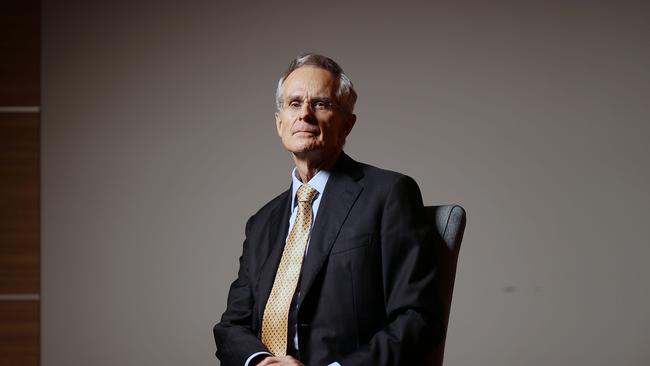Use NBN as an asset not a money maker, warns ACCC boss
Outgoing competition tsar Rod Sims says the National Broadband Network should not be run with the objective of making a commercial return on the government’s $50bn investment.

Outgoing competition tsar Rod Sims says the National Broadband Network should not be run with the objective of making a commercial return on the government’s $50bn investment.
Mr Sims, who will next month step down as chair of the Australian Competition & Consumer Commission, said the focus of the NBN should be “making the best use of this great asset”.
“After spending $50bn on the NBN, the objective must not be a commercial return on the sunk investment,” Mr Sims told the National Press Club in Canberra. “The prices that allow the NBN to get a commercial return on all its outlays, and the prices that make best use of this expensive asset, are very likely quite different.
“We all saw the benefit of having the NBN completed in time for the pandemic lockdowns. That is just a taste of the benefits if we get NBN pricing right.
“Prices must allow NBN to keep investing as needed but must also see optimum use made of it.”
With the NBN likely to be privatised in the future, Mr Sims said there needed to be a new attitude by state and federal governments about privatising infrastructure.
“In Australia, almost uniquely, we seem to focus on how much we can sell infrastructure assets for, rather than having our infrastructure benefit our wider economy,” Mr Sims said.
“Such behaviour can dramatically affect existing users and could be considered a continuing tax on the community.
“I believe all governments need to sign up to a checklist before infrastructure assets are sold, to avoid provisions which restrict competition and to ensure there is appropriate regulation where monopoly or significant market power will exist post-sale.”
Reflecting on his 11-year tenure as the head of the ACCC, Mr Sims said the agency had become more sophisticated and more willing to take big corporations to court. He said he was proud that under his leadership, the ACCc was at the “forefront of world efforts to identify the harms from digital platforms and potential solutions to them”.
“We have an internet dominated by a few gatekeeper companies. Google has 95 per cent of search, Facebook dominates social media and Google and Apple dominate the app market, particularly on mobile devices,” he said.
“While they innovated their way to success, they also acquired a huge array of companies that extended their reach and cemented their power.” He said there needed to be a new era of reform in the post-Covid era to strengthen consumer and competition laws, declaring it would “make our market economy work better”.
“Australia is almost unique in not having a formal merger approval system,” he said.
“Further, the ACCC must prove, if a matter goes to court, that future negative consequences will occur, which can only be speculated on, against the so-called real-world evidence of the necessarily self-interested merger parties about what will happen in the future.”




To join the conversation, please log in. Don't have an account? Register
Join the conversation, you are commenting as Logout